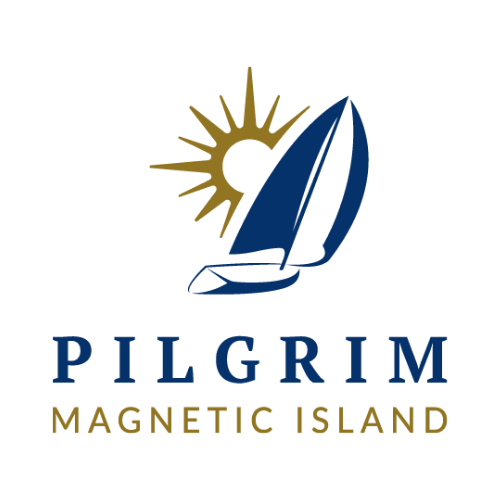Island Stories & Local Tips
Three Top Tips to Dining Out on Magnetic Island
Eating out on Maggie has its quirks — but that’s part of the charm! With a little local know-how, you can skip the surprises and enjoy the best of island dining. Here are our top three tips to help you plan ahead, find the gems, and make the most of your meals on Magnetic Island.
Pilgrim: The Yacht
Pilgrim is more than a beautiful 58-foot classic yacht — she’s a part of the family. Discover her impressive stats, her fascinating connection to the America’s Cup, and the incredible journey she’s taken from racing waters to becoming the cornerstone of Pilgrim Magnetic Island and the heart of unforgettable sailing experiences.
The Ultimate Guide to Magnetic Island
Welcome to our island paradise — Magnetic Island, our way. After over a decade of living, sailing, and exploring here, we’re sharing our personal favourites — the real spots we recommend to friends. From beaches and hikes to coffee, seafood, and sunset drinks, this is your guide to experiencing Maggie like a local.
The Pumpkin Chutney Story
Our Pumpkin Chutney isn’t just a condiment — it has its own little fan club. Made with love and local produce, it’s a favourite on our platters and a hit with guests who always ask where to get more. Read the story behind it, try the recipe, or find out where you can grab a jar to take home.
What’s On the Platter?
One of the best parts of a Pilgrim experience is the generous spread of locally sourced food and drinks, prepared with care and designed to be shared. Discover what’s on the platters, where we source our produce, and why good food is at the heart of every sail.
The Story of Pilgrim Magnetic Island
Clare and Paul’s love for sailing began racing yachts on Sydney Harbour. Sharing a passion for good food and the sea, they built Pilgrim Sailing from the ground up. Leaving city life behind, they moved to Magnetic Island to create unforgettable barefoot luxury sailing experiences amid stunning tropical waters.








